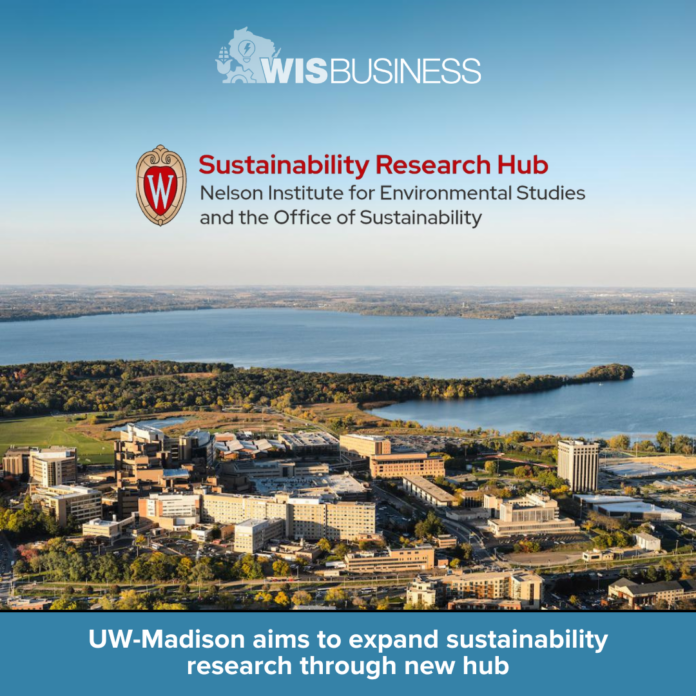UW-Madison has launched a new hub to coordinate sustainability efforts, aimed at driving a “significant expansion” in related research.
The university on Friday announced the launch of the Sustainability Research Hub, one element of its environmental sustainability initiative outlined in Chancellor Jennifer Mnookin’s Board of Regents address last month.
Involving both the university’s Nelson Institute for Environmental Studies and Office of Sustainability, the new effort will target large federal research grants with research teams spanning multiple departments. It will offer support for researchers seeking these grants such as grant writing and proposal development, project coordination, graphic design, proofreading, budget preparation and more.
Paul Robbins, dean of the Nelson Institute, notes sustainability research can involve engineering, chemistry, geosciences, history and other disciplines.
“But the challenges of coordinating all this talent, the effort required to produce the synergies needed to be competitive, and the expertise to turn all that talent into major, highly competitive, multi-million-dollar grants: those are things that the Hub can address,” Robbins said in a statement.
The number of UW-Madison researchers working on sustainability research jumped from 153 to 336 between 2018 and 2021, and has stayed above 300 since then, according to university figures.
The university says it had about 1,200 grants supporting $130 million in sustainability research and development expenditures in fiscal year 2022.
“By investing in administrative human talent–grant writers, matchmakers, project and award coordinators, we are empowering scholarly talent and leveraging it to do something far bigger than we are achieving today,” Robbins said. “This is about making a big leap.”
See more.






